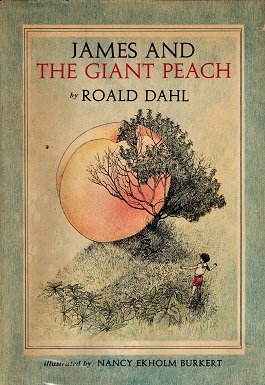Peter Handke
Explore the timeline of Peter Handke, the acclaimed Austrian novelist, playwright, and screenwriter. Discover key events in his life, his literary achievements, major works, and the milestones that have shaped his career, including his Nobel Prize in Literature in 2019.
Birth of Peter Handke
Peter Handke was born on December 6, 1942, in Griffen, Austria. He would grow up to become a prolific and controversial Austrian novelist, playwright, and translator. Handke’s literary career would span several decades and include a wide range of works characterized by their experimental style and exploration of language and perception. He gained early fame with works like 'Offending the Audience' and 'Kaspar', and later for his novels including 'A Sorrow Beyond Dreams'.
Publication of 'Publikumsbeschimpfung'
'Publikumsbeschimpfung' (Offending the Audience) is a play by Peter Handke, first published in 1966. The play is considered one of his most important early works and is characterized by its experimental nature. It lacks a traditional narrative structure and involves the actors directly addressing the audience, challenging the conventional expectations of theatergoers. This work established Handke as a leading figure in contemporary theatre.
Publication of 'Short Letter, Long Farewell'
In 1972, Peter Handke published 'Short Letter, Long Farewell', a novel that portrays a complex journey across America. The book blends elements of the road novel with introspective meditations on identity, loss, and the act of writing. It illustrates Handke's narrative style, combining vivid descriptions of landscapes with philosophical musings. This work further solidified his status as an influential writer in the realm of postmodern literature.
Publication of 'A Sorrow Beyond Dreams'
Peter Handke's 'A Sorrow Beyond Dreams', published in 1975, is a poignant short novel that explores personal and universal themes of grief and memory. It is a meditation on the suicide of Handke's mother, examining the impact of her life and death through sparse, reflective prose. The book is acclaimed for its emotional depth and narrative restraint, marking a significant point in Handke’s exploration of personal and existential themes.
Release of the film 'Wings of Desire'
'Wings of Desire', released in 1987, is a film directed by Wim Wenders with Peter Handke contributing to the screenplay. The film is a philosophical exploration of life in Berlin, seen through the eyes of angels who observe the inhabitants of the city. Its themes of love, desire, and the human experience are captured with poetic imagery and dialogue. 'Wings of Desire' is considered a classic of world cinema and showcases Handke's lyrical scriptwriting.
Premiere of 'The Chinese Woman',''
'The Chinese Woman' is a play by Peter Handke that premiered in 1989. The play is noted for its minimalist staging and abstract dialogue, which reflects Handke's continuing experimentation with theatrical form. 'The Chinese Woman' is an intriguing exploration of themes including cultural identity and political tension. Handke’s influence on contemporary theatre remains notable, with this play contributing to his legacy as an innovative dramatist.
Publication of 'My Year in the No-Man's-Bay'
'My Year in the No-Man's-Bay', published in 1997, is one of Peter Handke’s longer novels. The book intricately weaves themes of isolation, introspection, and artistic creation. It follows a narrator who reflects on his life and the changes he undergoes in a year spent in solitude. Handke’s prose is dense and contemplative, demanding careful reading and rewarding audiences with profound insights into the nature of identity and existence.
Publication of 'Don Juan (His Own Version)'
Published in 2004, 'Don Juan (His Own Version)' by Peter Handke is a reinterpretation of the classic Don Juan narrative. Handke offers a new perspective on the legendary character, presenting his version in a series of monologues that delve into themes of myth and philosophy. The novel is recognized for its stylistic innovation and exploration of storytelling, with Handke using the iconic figure to examine broader human concerns.
Release of 'The Journey to the Sonorous Land'
'The Journey to the Sonorous Land, or, The Art of Asking', released in 2014, is a play by Peter Handke. The play explores the concept of questioning and the space between language and silence. Handke's work often transcends traditional boundaries, and this play exemplifies his interest in existential queries and the subtleties of human communication. It continues his tradition of challenging audiences to think deeply about the nature of reality and understanding.
Awarded Nobel Prize in Literature
On October 10, 2019, Peter Handke was awarded the Nobel Prize in Literature, a highly prestigious international recognition. The award cited his influential work focusing on the exploration of language and the human condition. Handke's receipt of the Nobel Prize was met with both acclaim and controversy due to his political positions and past statements about the Yugoslav Wars. His contribution to literature is marked by a blend of poetic finesse and intellectual depth.
Frequently asked questions about Peter Handke
Discover commonly asked questions regarding Peter Handke. If there are any questions we may have overlooked, please let us know.
Who is Peter Handke and when was he born?
What are some significant works by Peter Handke, and when were they published?
Has Peter Handke received any controversies related to his work and statements?
When did Peter Handke win the Nobel Prize in Literature?
Related timelines
More timelines connected to Peter Handke







